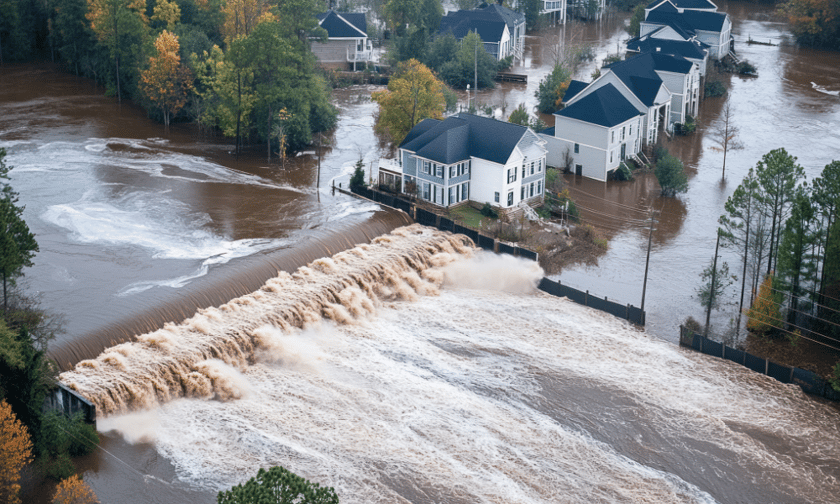

The summer of 2024 is the second costliest summer for floods in Ontario since 2013 after two summer storms generated more than $1 billion in insured damages, the Insurance Bureau of Canada said.
The weather station at Toronto’s Pearson International Airport recorded 1,145 millimetres of precipitation last year, higher than the previous annual record set in 2008 by almost 100 millimetres and surpassing the 30-year norm by more than 300 millimetres, meteorologist Steven Flisfeder said in an interview.
According to Flisfeder, the airport was hit by “once-in-a-century” storms in July and August 2024, each delivered more than 100 millimetres of rain. Flisfeder said that these storms each had a 1% chance of happening in a given year and seeing them in back-to-back months is “very rare.”
He added that they are also seeing similar trends in the snow squall activity in areas southeast of Georgian Bay. “[A]reas near Barrie received upwards of 50 or 60 centimetres of snow so far, and areas just 10, 15 kilometres north received barely any snow,” he said.
The meteorologist said the extreme precipitation recorded at the airport last year could be attributed to the impact of El Nino and climate change.
El Nino, the natural recurring climate cycle tied to shifting warm water in the Pacific Ocean, typically intensifies summer precipitation in southern Ontario. However, climate change, which warms the atmosphere, allows it to hold more moisture which eventually comes down as more rain.
Climate change can also affect other weather events, like heat waves. Scientists from Environmental and Climate Change Canada (ECCC) said last year that human-driven climate change made all extreme heat events in the country hotter and more frequent.
The scientists examined 37 of the most severe heat waves recorded in the country last year and found that of these events, five were at least one to two times more likely to occur; 28 were determined to be two to 10 times more likely to occur, and four were deemed to be at least 10 times more likely to occur.
The ECCC said that a better understanding of the causes of effects of extreme weather, including heat waves and extreme precipitation, can help the government better plan for and respond to weather emergencies.
